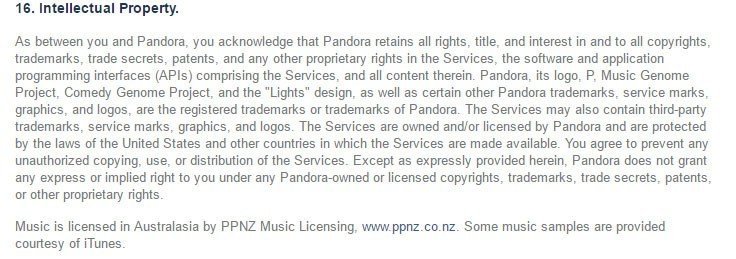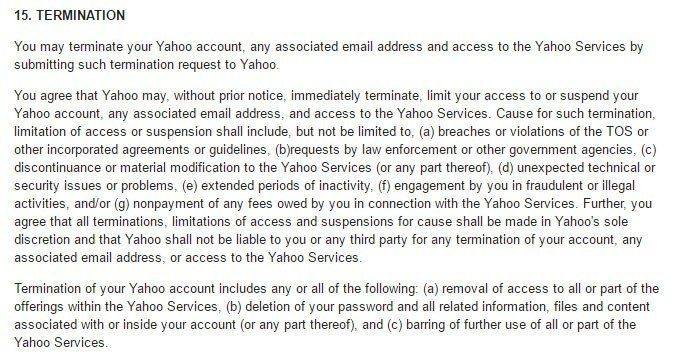term and condition
TermsFeed
Terms and Conditions Generator
Generate a Terms and Conditions for 2019 for your business with the Terms & Conditions Generator from TermsFeed.
You can use this agreement for:
- Websites
- E-commerce stores
- Mobile apps
- SaaS apps
- Facebook apps
- And many more
Generate a Terms and Conditions for 2019 for your business with the Terms & Conditions Generator from TermsFeed.
You can use this agreement for:
- Websites
- E-commerce stores
- Mobile apps
- SaaS apps
- Facebook apps
- And many more
Terms and Conditions for websites
Because a Terms and Conditions agreement is the agreement where you inform the users of your website about the rules, terms and guidelines that they need to follow in order to use and access your website, a Terms and Conditions agreement has become extremely important.
While it's not required by any laws currently (but third-parties such as Facebook may require it), through a Terms and Conditions you can maintain your rights to exclude certain users that may abuse your website or do not follow the rules you set
It doesn't really matter what kind of platform your website uses:
- WordPress
- Joomla, Drupal
- Wix
- Weebly
- And so on
If you don't have this agreement for your website yet, use the Generator to create it!

Because a Terms and Conditions agreement is the agreement where you inform the users of your website about the rules, terms and guidelines that they need to follow in order to use and access your website, a Terms and Conditions agreement has become extremely important.
While it's not required by any laws currently (but third-parties such as Facebook may require it), through a Terms and Conditions you can maintain your rights to exclude certain users that may abuse your website or do not follow the rules you set
It doesn't really matter what kind of platform your website uses:
- WordPress
- Joomla, Drupal
- Wix
- Weebly
- And so on
If you don't have this agreement for your website yet, use the Generator to create it!

Terms and Conditions for ecommerce stores
Unlike a Privacy Policy that is required for almost all online businesses, a Terms and Conditions isn't required for an ecommerce store, but it's extremely important to have it.
A Terms and Conditions could legally protect your ecommerce store. It is in this type of legal agreement where you set the rules that your customers would follow during a purchase and limit your liability in the event that your products fail.

Unlike a Privacy Policy that is required for almost all online businesses, a Terms and Conditions isn't required for an ecommerce store, but it's extremely important to have it.
A Terms and Conditions could legally protect your ecommerce store. It is in this type of legal agreement where you set the rules that your customers would follow during a purchase and limit your liability in the event that your products fail.

Terms and Conditions for mobile apps
The Terms and Conditions agreement can act as a legal contract between you, the mobile app owner or developer, and the users of your app. Like a Terms and Conditions for a website, this agreement for a mobile app would set the rules and terms that users must follow in order to use your app.
Here are a couple of reasons why you'll want to have a Terms and Conditions for a mobile app:
- You can stop abusive users from using your app.
- You can terminate or block accounts at your sole discretion.
- Liability to users will be limited.
- And many more.
If you don't have this agreement for your mobile app yet, use the Generator to create it!

The Terms and Conditions agreement can act as a legal contract between you, the mobile app owner or developer, and the users of your app. Like a Terms and Conditions for a website, this agreement for a mobile app would set the rules and terms that users must follow in order to use your app.
Here are a couple of reasons why you'll want to have a Terms and Conditions for a mobile app:
- You can stop abusive users from using your app.
- You can terminate or block accounts at your sole discretion.
- Liability to users will be limited.
- And many more.
If you don't have this agreement for your mobile app yet, use the Generator to create it!

For SaaS apps
There are multiple reasons why SaaS businesses would want to have a Terms and Conditions as a legally binding agreement between the company and the customers accessing and using the app on a regular basis.
Think of the Terms and Conditions as a legal contract that the SaaS company and its customers are signing together: the terms and rules as set in the agreement will govern the access to the app.
Here's why you'll want this agreement if you're developing a SaaS app:
- If a paying customer didn't pay yet, you can block or suspend access of that user to the app.
- If your app allows user-generated content to be posted publicly and users start posting infringed content, you can retain your right to remove any content that infringes copyright.
- You can choose to include arbitration clauses.
- And many more.
If you don't have this agreement for your SaaS app yet, use the Generator to create it!

There are multiple reasons why SaaS businesses would want to have a Terms and Conditions as a legally binding agreement between the company and the customers accessing and using the app on a regular basis.
Think of the Terms and Conditions as a legal contract that the SaaS company and its customers are signing together: the terms and rules as set in the agreement will govern the access to the app.
Here's why you'll want this agreement if you're developing a SaaS app:
- If a paying customer didn't pay yet, you can block or suspend access of that user to the app.
- If your app allows user-generated content to be posted publicly and users start posting infringed content, you can retain your right to remove any content that infringes copyright.
- You can choose to include arbitration clauses.
- And many more.
If you don't have this agreement for your SaaS app yet, use the Generator to create it!

For Facebook apps
A Terms and Conditions URL is asked by the Facebook team when you are submitting your Facebook app for review. While the agreement isn't mandatory by law, Facebook asks for the URL to your Terms and Conditions at the "Contact Info" section.
It's beneficial to have a Terms and Conditions for your app before you submit it to the review process as you can outline what users must do or cannot do to access and continue to access your Facebook app once it is live.

A Terms and Conditions URL is asked by the Facebook team when you are submitting your Facebook app for review. While the agreement isn't mandatory by law, Facebook asks for the URL to your Terms and Conditions at the "Contact Info" section.
It's beneficial to have a Terms and Conditions for your app before you submit it to the review process as you can outline what users must do or cannot do to access and continue to access your Facebook app once it is live.

Terms & Conditions FAQ
A Terms and Conditions agreement acts as a contract between you and your users.
A Terms and Conditions agreement acts as a contract between you and your users.
What's a Terms & Conditions agreement (T&C)?
What can I add in a Terms & Conditions agreement (T&C)?
Is a Terms & Conditions required by law?
Why do I need a Terms & Conditions?
There are five reasons why a Terms and Conditions is necessary:
-
Prevent abuse.
This is especially necessary if your app or website allows for interaction between users.
Users will not want to use your website/service or service if defamation, spamming or other abusive behavior is uncontrolled.
Without a Terms & Conditions, you lack the authority to suspend or ban users who display problematic tendencies.
An example of of this is present in the Terms and Conditions agreement of OKCupid, which is managed by Humor Rainbow:

-
Protect your content.
As the business owner, you own the logo, content, and design of your website or app. The Terms & Conditions agreement informs users of this fact and prevents them from misappropriating it.
Pandora offers an example in its Terms of Use page:

-
Preserve right to terminate.
While termination may be implied in other clauses, having a distinct right outlined in the Terms and Conditions to terminate accounts is better.
A good example is Yahoo which grants this remedy for any violation or breach of its Terms & Conditions:

-
Limit liability.
The Terms & Conditions agreement also limits causes of actions your users may attempt to use against you. These limits on liability may address errors in content or system shutdowns.
Basically, terms explain that users assume these risks when they sign up for your app, website or service and you cannot be held liable for any losses they sustain in these events.
-
Notice of governing law.
If your company is located in California, it's doubtful that you want to attend an arbitration proceeding in Singapore.
That's where the section on governing law comes in: you state the jurisdiction of your terms and indicate where any dispute resolution must take place.
In its "Conditions of Use" agreement, Amazon, limits dispute resolution to the Federal Arbitration Act and Washington state law:

There are five reasons why a Terms and Conditions is necessary:
- Prevent abuse.This is especially necessary if your app or website allows for interaction between users.Users will not want to use your website/service or service if defamation, spamming or other abusive behavior is uncontrolled.Without a Terms & Conditions, you lack the authority to suspend or ban users who display problematic tendencies.An example of of this is present in the Terms and Conditions agreement of OKCupid, which is managed by Humor Rainbow:

- Protect your content.As the business owner, you own the logo, content, and design of your website or app. The Terms & Conditions agreement informs users of this fact and prevents them from misappropriating it.Pandora offers an example in its Terms of Use page:

- Preserve right to terminate.While termination may be implied in other clauses, having a distinct right outlined in the Terms and Conditions to terminate accounts is better.A good example is Yahoo which grants this remedy for any violation or breach of its Terms & Conditions:

- Limit liability.The Terms & Conditions agreement also limits causes of actions your users may attempt to use against you. These limits on liability may address errors in content or system shutdowns.Basically, terms explain that users assume these risks when they sign up for your app, website or service and you cannot be held liable for any losses they sustain in these events.
- Notice of governing law.If your company is located in California, it's doubtful that you want to attend an arbitration proceeding in Singapore.That's where the section on governing law comes in: you state the jurisdiction of your terms and indicate where any dispute resolution must take place.In its "Conditions of Use" agreement, Amazon, limits dispute resolution to the Federal Arbitration Act and Washington state law:







Comments
Post a Comment